
Azigard 500mg Tablet
Manufacturer
Vanguard Therapeutics Pvt Ltd
Salt Composition
Azithromycin (500mg)
Key Information
Short Description
Azigard 500mg Tablet is an antibiotic used to treat various types of bacterial infections of the respiratory tract, ear, nose, throat, lungs, skin, and eye in adults and children.
Dosage Form
Tablet
Introduction
Azigard 500mg Tablet is an antibiotic used to treat various types of bacterial infections of the respiratory tract, ear, nose, throat, lungs, skin, and eye in adults and children. It is also effective in typhoid fever and some sexually transmitted diseases like gonorrhea.
Directions for Use
Take this medicine in the dose and duration as advised by your doctor. Swallow it as a whole. Do not chew, crush or break it. Azigard 500mg Tablet may be taken with or without food but it is better to take it at a fixed time.
How it works
Azigard 500mg Tablet is an antibiotic. It works by preventing synthesis of essential proteins required by bacteria to carry out vital functions. Thus, it stops the bacteria from growing and prevents the infection from spreading.
Quick Tips
Do not skip any doses and finish the full course of treatment even if you feel better. Stopping it early may make the infection to come back and harder to treat. Take it 1 hour before or two hours after food. Do not take antacids 2 hours before or after taking Azigard 500mg Tablet. Diarrhea may occur as a side effect but should stop when your course is complete. Inform your doctor if it doesn't stop or if you find blood in your stools. Stop taking Azigard 500mg Tablet and inform your doctor immediately if you develop an itchy rash, swelling of the face, throat or tongue or breathing difficulties while taking it.
Related Medicines

Aziwok 500 Tablet
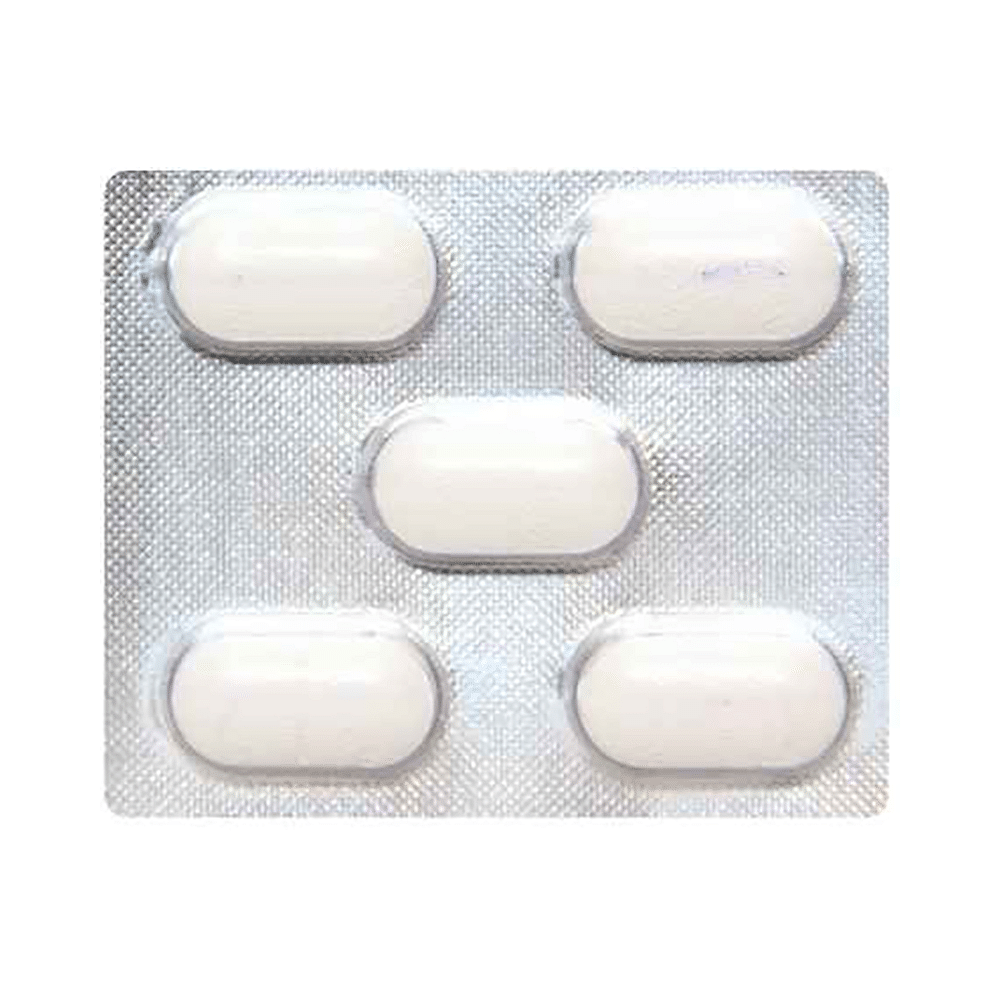
ATM 500 Tablet
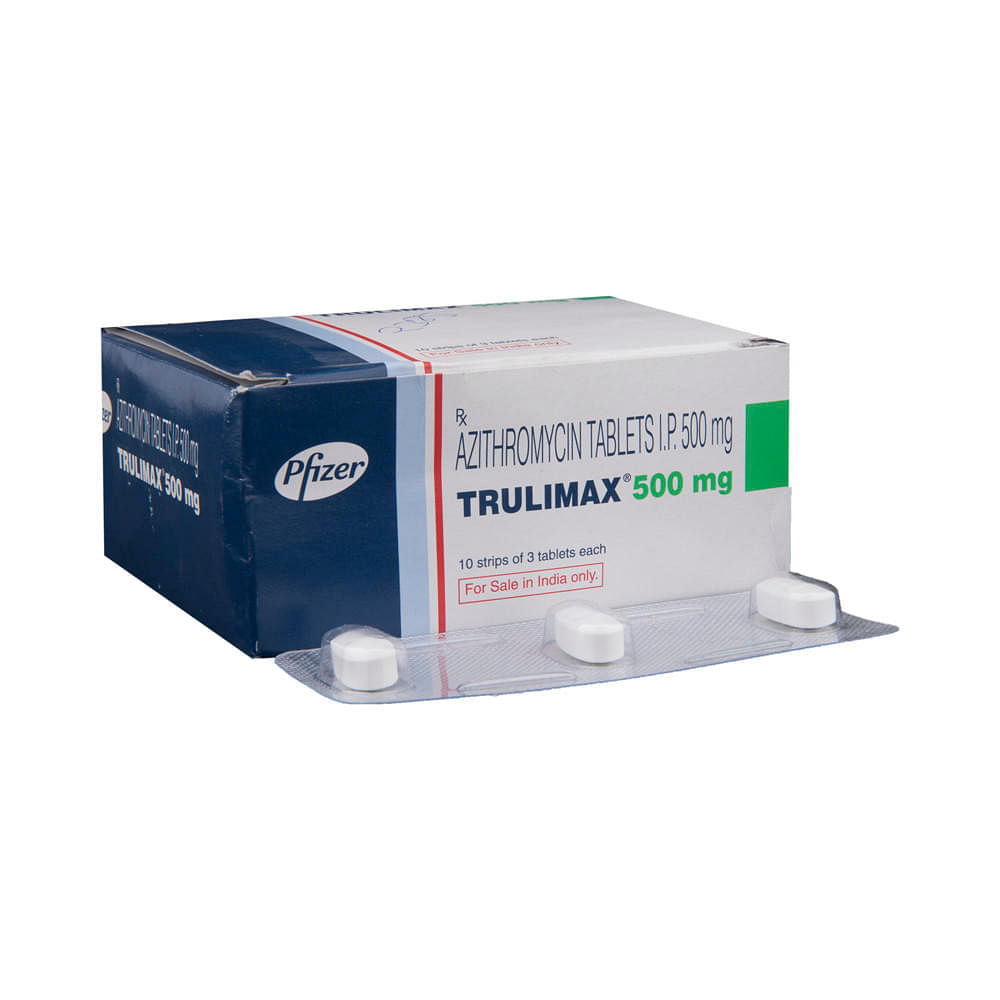
Trulimax 500mg Tablet
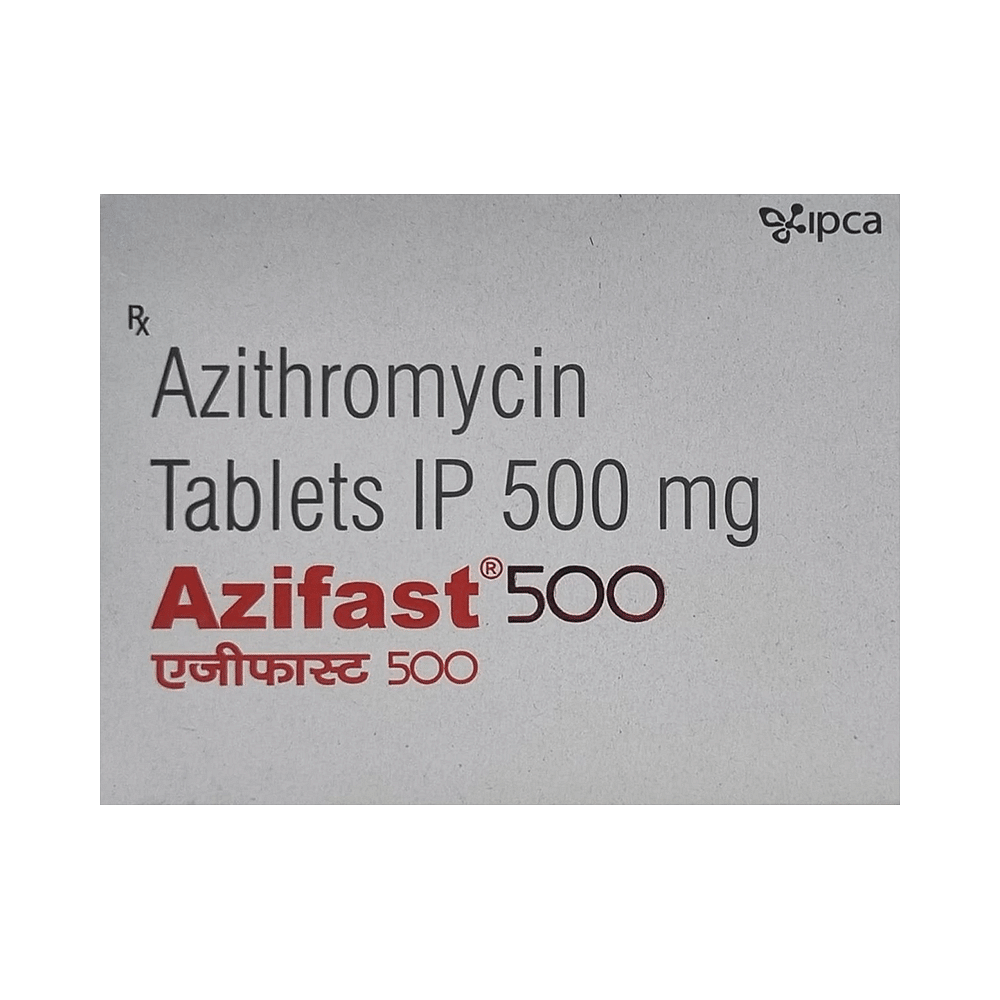
Azifast 500 Tablet
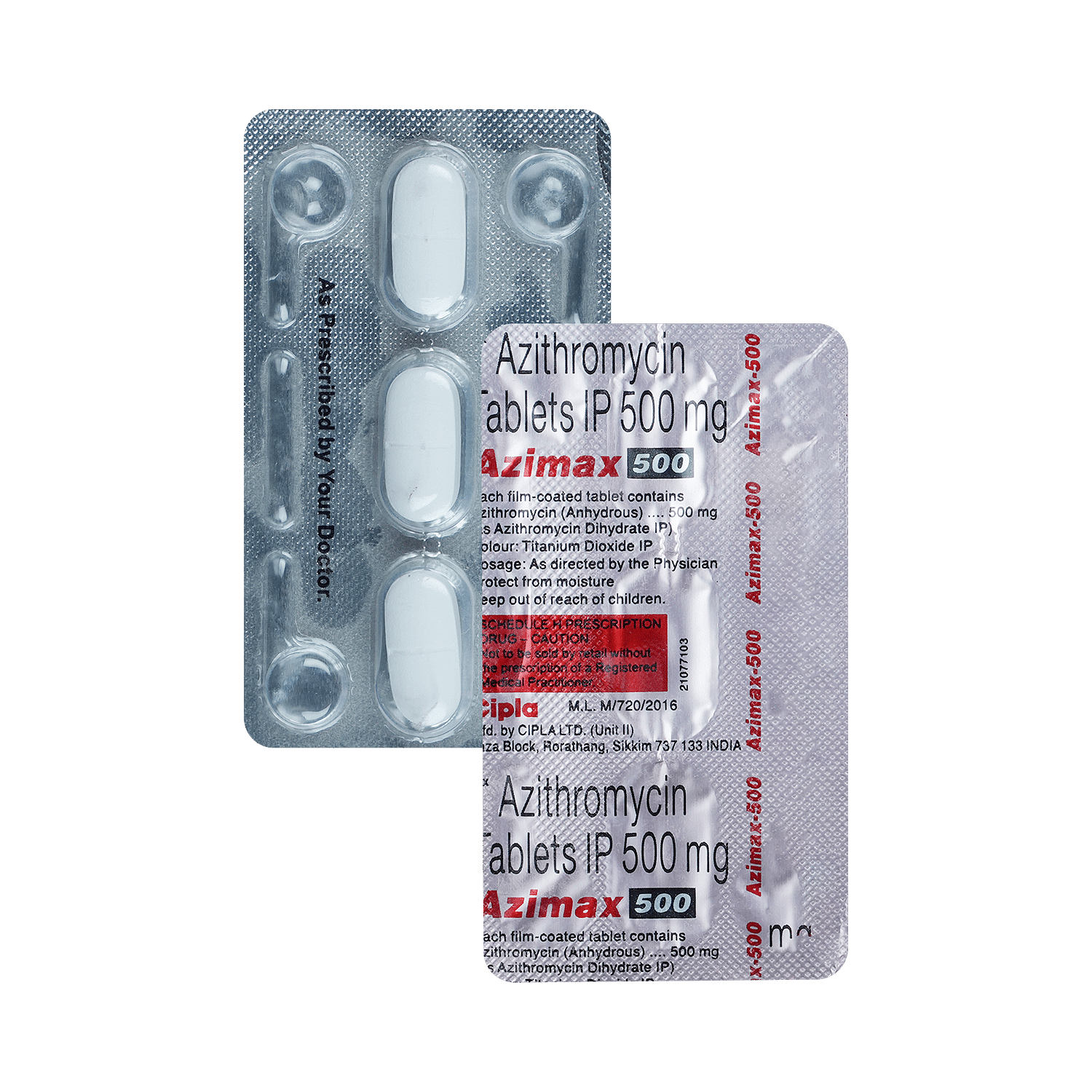
Azimax 500 Tablet
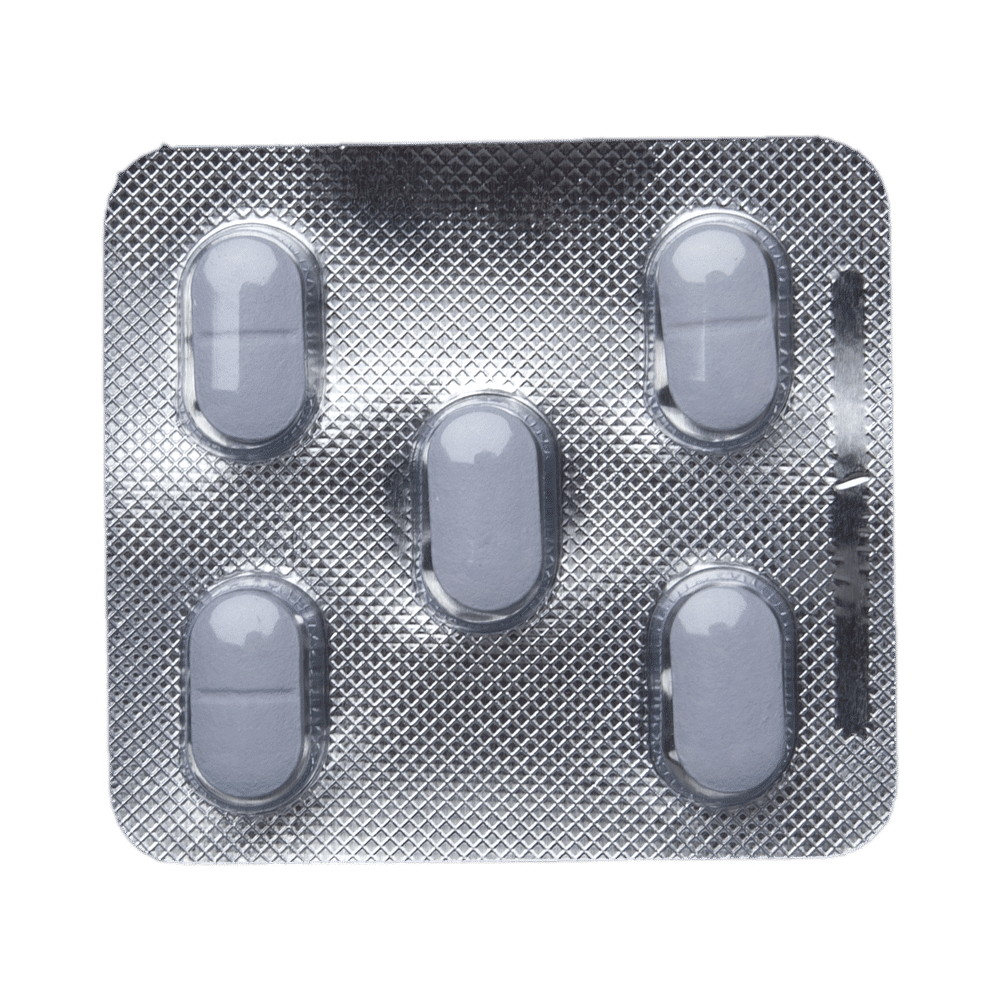
Zady-500 Tablet

Zithrox 500 Tablet
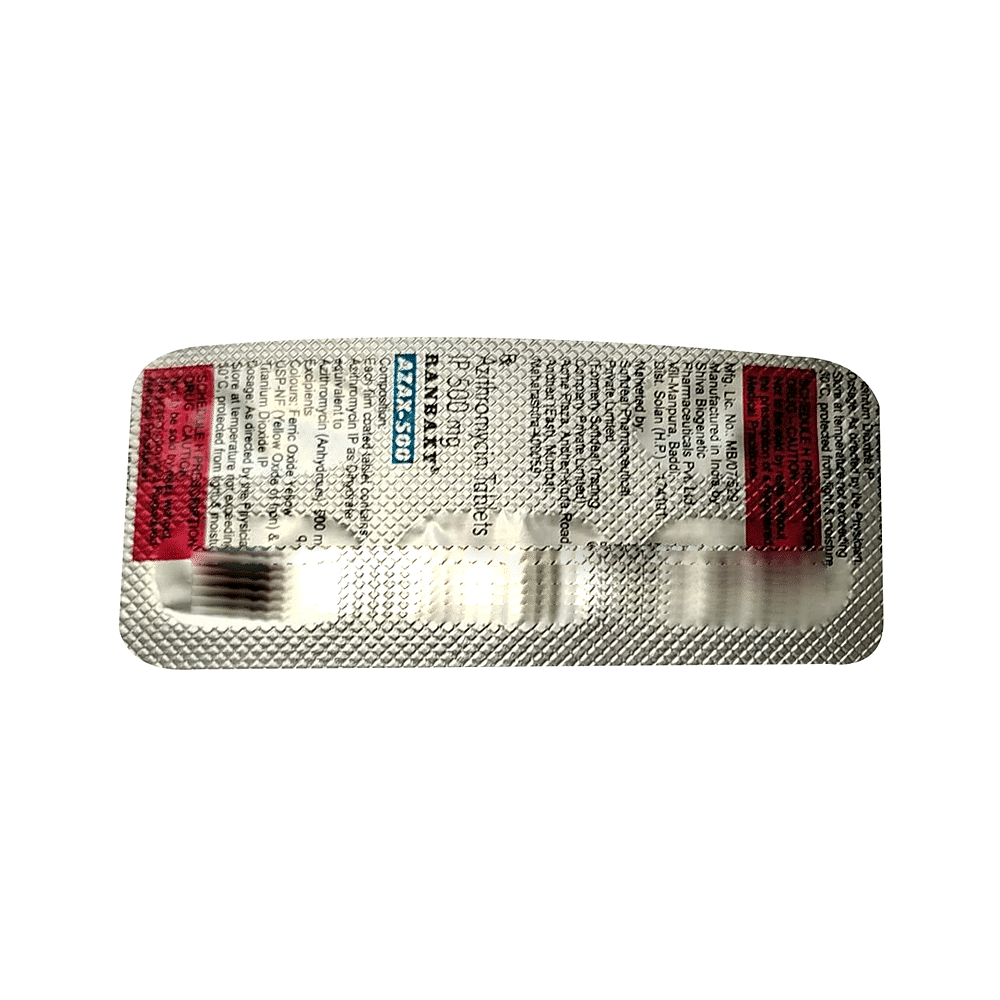
Azax 500 Tablet
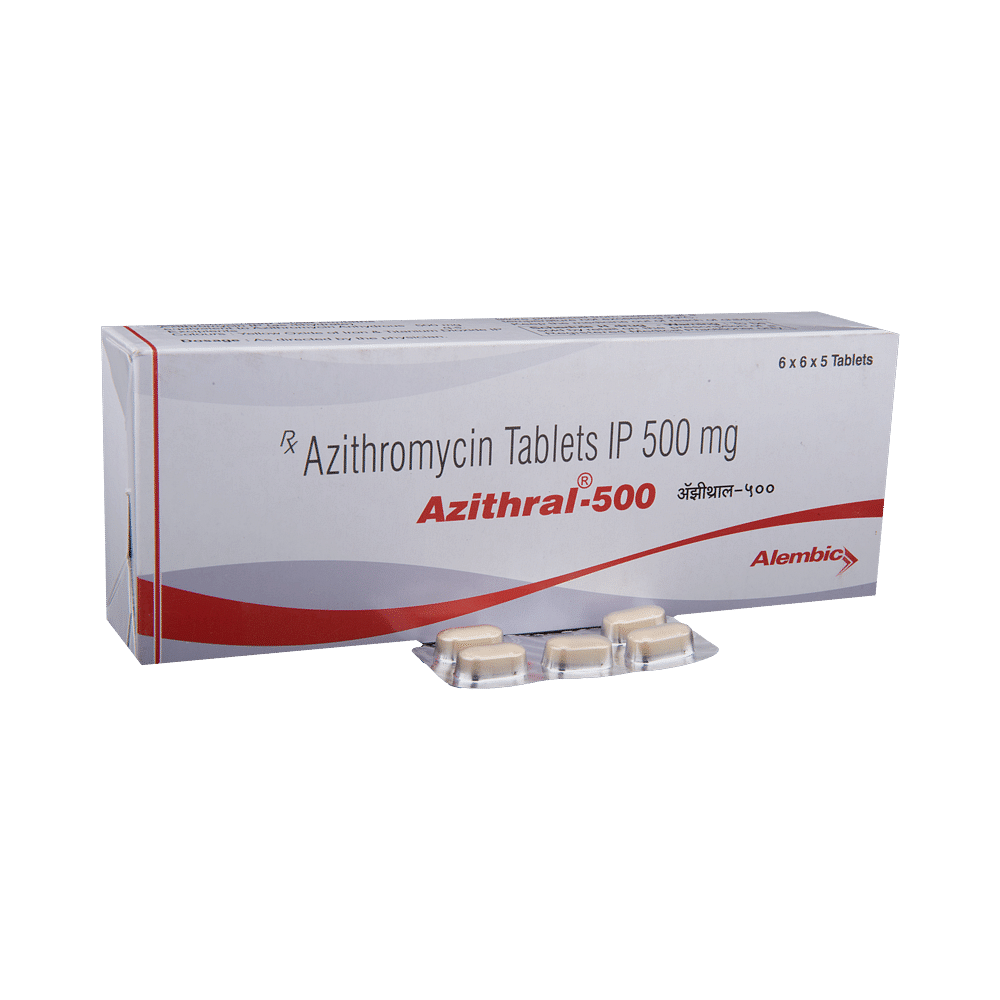
Azithral-500 Tablet
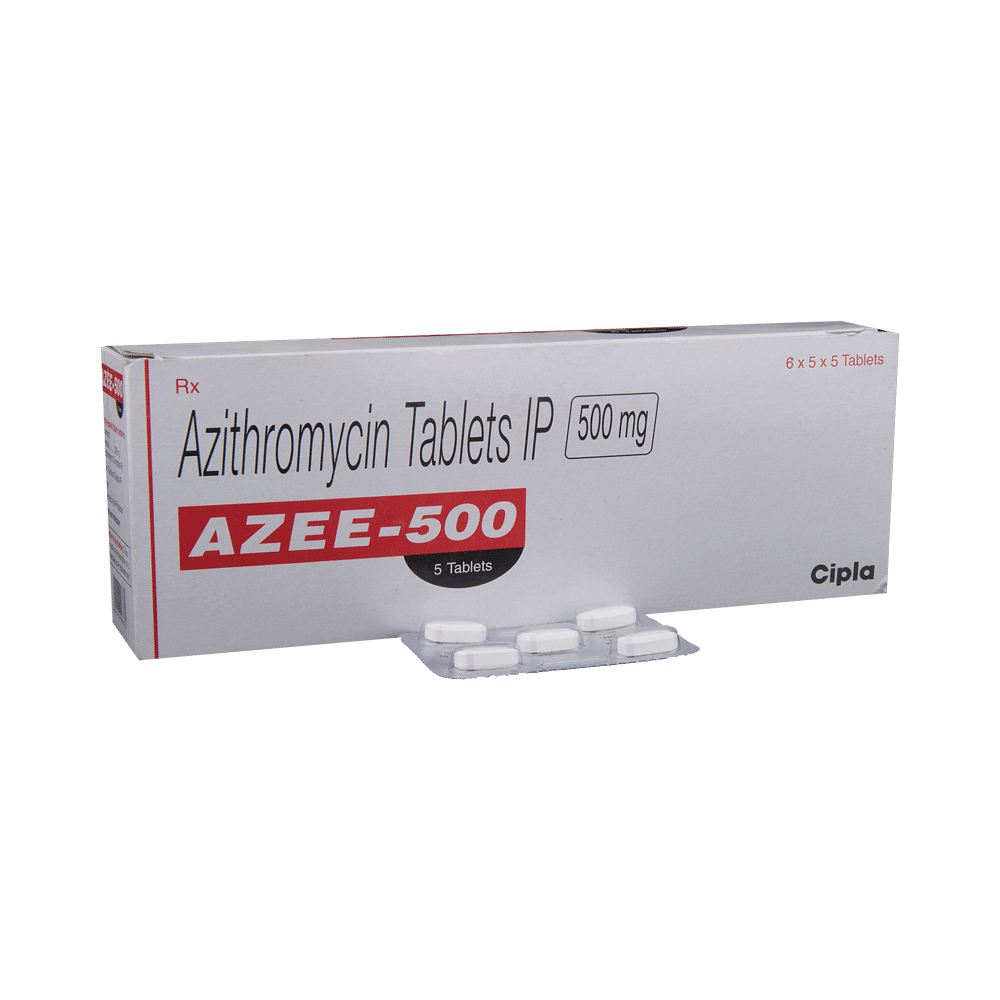
Azee-500 Tablet
Frequently asked questions
Is Azigard 500mg Tablet safe?
Azigard 500mg Tablet is generally considered safe when taken as directed by your doctor. However, it's important to understand that all medications come with potential side effects and individual responses may vary.
What if I don't get better?
If you don't experience improvement in your symptoms after 3 days of taking Azigard 500mg Tablet, inform your doctor immediately. If your symptoms worsen, also contact your doctor promptly.
Can the use of Azigard 500mg Tablet cause diarrhea?
Yes, some individuals taking Azigard 500mg Tablet may experience diarrhea as a possible side effect. This is because it affects both harmful and helpful bacteria in the body, contributing to its antibacterial action.
Can I take Azigard 500mg Tablet at night?
Azigard 500mg Tablet is typically taken once daily. You can choose any time of day that works best for you, but remember to consistently take the medication at the same time each day. It's advisable to take it one hour before meals or two hours after eating.
How long does Azigard 500mg Tablet work?
Azigard 500mg Tablet usually starts working within a few hours of taking it. You may notice an improvement in symptoms within a few days. However, consistency is key: Do not stop taking the medicine without completing your doctor's prescribed course.
Why is Azigard 500mg Tablet given for 3 days?
The duration of treatment depends on the type of infection being treated and the individual patient's needs. In most bacterial infections, a single dose of 500 mg is given for 3 days. It can also be administered as 500 mg once on day one and then 250 mg once daily from day two to five. For specific cases like genital ulcer disease, a single 1-gram dose is used.
What should I avoid while taking Azigard 500mg Tablet?
It's recommended that patients avoid combining Azigard 500mg Tablet with antacids as this may affect the medication's overall effectiveness. Additionally, it's advisable to limit sun exposure or tanning bed use due to the increased risk of sunburn.
Is Azigard 500mg Tablet a strong antibiotic?
Azigard 500mg Tablet is considered a potent antibiotic that's effective for various bacterial infections. It has a longer half-life, meaning it remains in the body longer than other antibiotics, allowing for once daily administration and a shorter treatment duration.
Can I get a yeast infection from taking Azigard 500mg Tablet?
Some individuals may experience a fungal or yeast infection known as thrush after taking Azigard 500mg Tablet. Antibiotics like Azigard 500mg Tablet can disrupt the balance of good bacteria in your gut, which normally prevents thrush infections. If you notice any symptoms such as sore throats, vaginal itching or discharge, a white patch on the tongue or mouth, or discomfort after taking Azigard 500mg Tablet, inform your doctor immediately.


